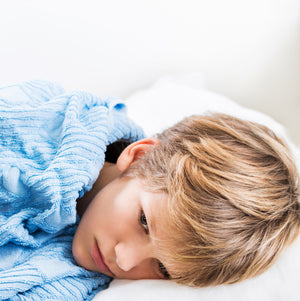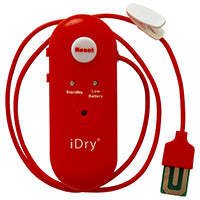Bedwetting in children 8 to 12 years and teenagers
January 18, 2019

Many children do finally stop wetting the bed as they mature and develop adult sleep patterns where there are shorter periods of very deep sleep.
For children who reach high school and are still bedwetting, the issue can seriously affect the child's life.
Once a child is eight years old they only have a 5% chance of outgrowing the problem in the next year. This means that without treatment 95% of eight year old who wet will still be wetting at nine.
Once in their teens a child has often been subjected to various treatments which clearly have not worked. Is it any surprise that the teenager now appears not to care. Why would they respond positively to yet another health professional saying they have the answer? The teenager has often started to believe that nothing can be done.
Parents become very upset. Try as they might to get help many doctors and health professionals just aren't experts in this area. If their own children did not have the problem then they may not understand what the child and parent are going through. Parents are also understandably very reluctant to discuss the matter with friends so it is a secret held within the family. Everyone needs someone supportive to discuss the matter with and sometimes a referral to a psychologist is suggested. Any psychological problems usually resolve quickly once the bedwetting is resolved. The main place a psychologist can help is by setting out the best way forward especially in cases where the child or teenager is sick of it and no longer willing to try and follow a comprehensive program. Talk alone will not cure bedwetting. The aim should always be to achieve a complete cure.
There are usually the same causes in older children and teenagers as in younger children; small bladder capacity, too much urine produced at night, a sluggish bowel and deep sleep.
There can be other exacerbating factors. One of these is older children and teenagers who play a lot of sport or go to the gym. The activity is often after school and the amount of fluid these young people have in the afternoon can be large. They can be exhausted afterwards and go to bed early. This requires careful management in young people who don't wake up when they have a full bladder.
Teenagers often have the habit of lots of screen time watching blue light before bed. This can delay getting to sleep leaving them overtired when they can be more likely to fall into a very deep sleep.
Occasionally sleep apnoea can be a cause of bedwetting as can other medical illnesses, however, rather than looking for the one in a thousand cause it is usually best to try what current research recommends for the majority of cases.
Often in the past one strategy at a time has been tried without success.
Alarm - "didn't work"
Medication - "didn't work"
Sometimes unfortunately parents are given the wrong directions or no directions at all for using an alarm. It is not surprising that with no drinking plan, no check of other complicating factors and parents not knowing they have to "wake up" too to wake the child or teenager when the alarm sounds that alarms often fail in the more difficult cases.
Each element of a program may only be 25% of the way forward so each one on its own will not work.
We usually recommend treating bedwetting with the initial steps on the DVD Bedwetting Cured which includes a drinking plan then using a bedwetting enuresis alarm until an initial cure is achieved. If a cure has not been achieved within three months then medical help should to be sought. Sometimes a few months treatment on medication can then give everyone a good break and sometimes a permanent cure.
The other problem that sometimes is evident in older children and teenagers is an "almost" complete cure. Occasional bedwetting is acceptable when a child is five or six but in older children and teenagers even one wet night a month can take away the child's confidence although parents are often happy that there has been so much improvement. With older children one extra option is to use a pad and bell type alarm where the pad is left under the fitted sheet for several months after an initial cure "just in case" there is a wet night. The alarm can be disconnected and put away if visitors come but the alarm generally does not need to be set up each night. Once the teenager has had six months of dry nights they will feel confident enough to go away on camps and holidays with the school and with friends.
If you have not tried a comprehensive program before we recommend trialling the iDry alarm and DVD for three months. Follow up can be sought if necessary from Specialist Enuresis clinics at Children's Hospitals or Health Centres, Paediatricians and Continence Physiotherapists who usually treat children up to the age of 18. For adults bedwetting can be treated by a Urologist with an interest in Continence or a Continence Physiotherapist or Nurse.
We have found that even older children and adults who are given the right treatment can be completely cured.





